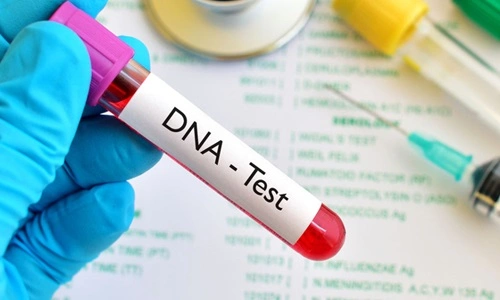Yes, DNA testing is legal in India. However, its use is regulated and governed by specific legal frameworks to ensure ethical application and prevent misuse. DNA tests are commonly employed for criminal investigations, paternity disputes, medical purposes, and immigration cases. While legal, the circumstances under which DNA testing can be requested or mandated vary depending on the context.
Legal Framework for DNA Testing in India

India does not currently have a comprehensive law exclusively governing DNA testing, but its application is guided by various legal provisions and judicial precedents:
- The Code of Criminal Procedure (CrPC), 1973
DNA testing is often used in criminal investigations to establish identity or link evidence to suspects. Under Section 53 and Section 164A of the CrPC, courts can authorize the collection of biological samples for forensic purposes. - The Evidence Act, 1872
DNA test results are admissible as evidence in Indian courts under Section 45, which allows expert opinions to aid judicial decision-making. Courts may use DNA evidence to resolve disputes, provided it complies with legal and procedural safeguards. - The Constitution of India
The right to privacy, protected under Article 21, has implications for DNA testing. Courts must balance the right to privacy with the need for justice, ensuring that DNA tests are conducted only when necessary and with proper safeguards. - Draft DNA Technology (Use and Application) Regulation Bill, 2019
This bill aims to establish a regulatory framework for DNA testing in India. It proposes the creation of a DNA Regulatory Board to oversee DNA profiling activities, ensuring the ethical use of DNA data while protecting individuals’ privacy. While the bill is yet to become law, it underscores the need for stringent oversight.
Applications of DNA Testing in India
DNA testing serves a variety of purposes, including:
- Criminal Investigations
- DNA tests are widely used to solve crimes such as rape, murder, and kidnapping.
- Forensic labs analyze biological evidence, such as blood, hair, or saliva, to identify suspects or exonerate the innocent.
- Paternity and Matrimonial Disputes
- Courts often order DNA tests in paternity disputes to determine the biological relationship between a parent and child.
- In divorce or child custody cases, DNA evidence may be used to resolve issues involving legitimacy or inheritance.
- Medical and Genetic Testing
- DNA tests are used to detect hereditary diseases and genetic conditions, aiding in personalized medicine and preventive healthcare.
- Immigration and Citizenship
- DNA tests are occasionally used in immigration cases to verify familial relationships when documentary evidence is insufficient.
Legal and Ethical Concerns
While DNA testing is legal, its application raises several legal and ethical questions:
- Consent and Privacy
- The collection and testing of DNA require informed consent to ensure that individuals’ privacy rights are respected.
- Unauthorized collection or testing of DNA samples is a violation of privacy and can lead to legal consequences.
- Admissibility in Court
- Courts exercise caution when admitting DNA evidence, ensuring it is relevant, obtained lawfully, and analyzed by accredited labs.
- The Supreme Court of India has ruled that DNA tests should not be ordered lightly and must not infringe on personal rights without a strong legal justification (Bhabani Prasad Jena v. Convenor Secretary, Orissa State Commission for Women, 2010).
- Data Protection and Misuse
- The lack of comprehensive DNA-specific legislation raises concerns about the misuse of genetic data.
- A robust framework, as proposed in the DNA Technology Bill, is needed to safeguard against unauthorized access and use.
Judicial Precedents
Indian courts have set important precedents regarding the use of DNA testing:
- Paternity Disputes
Courts have held that DNA tests should only be ordered in paternity cases if absolutely necessary to resolve the matter and should not be used to violate privacy or familial harmony. - Criminal Cases
DNA evidence has been upheld as reliable and admissible, provided the collection and analysis follow established forensic protocols.
Key Challenges
- Lack of Uniform Regulation
The absence of a comprehensive law governing DNA testing leads to inconsistencies in its application and interpretation. - Limited Infrastructure
India has a limited number of accredited forensic labs, resulting in delays in obtaining DNA test results. - Public Awareness
Misconceptions and a lack of understanding about DNA testing among the public and even legal professionals can lead to challenges in its effective use.
Conclusion
DNA testing is a powerful tool for justice, healthcare, and personal identity in India. While it is legal, its use must adhere to strict ethical and procedural guidelines to balance the benefits with individuals’ rights to privacy and consent. The proposed DNA Technology Bill is expected to provide a robust legal framework, ensuring the responsible and regulated use of DNA testing in India. Until then, courts and law enforcement agencies must continue exercising caution to prevent misuse while leveraging its potential to deliver justice and aid scientific progress.
Hina Abbasi is Editor and a passionate sports and entertainment content writer at WinnersMaze.com. Hina’s expertise spans across a wide range of sports, and interest in many TV shows allowing her to deliver insightful analysis and compelling stories that resonate with readers.

